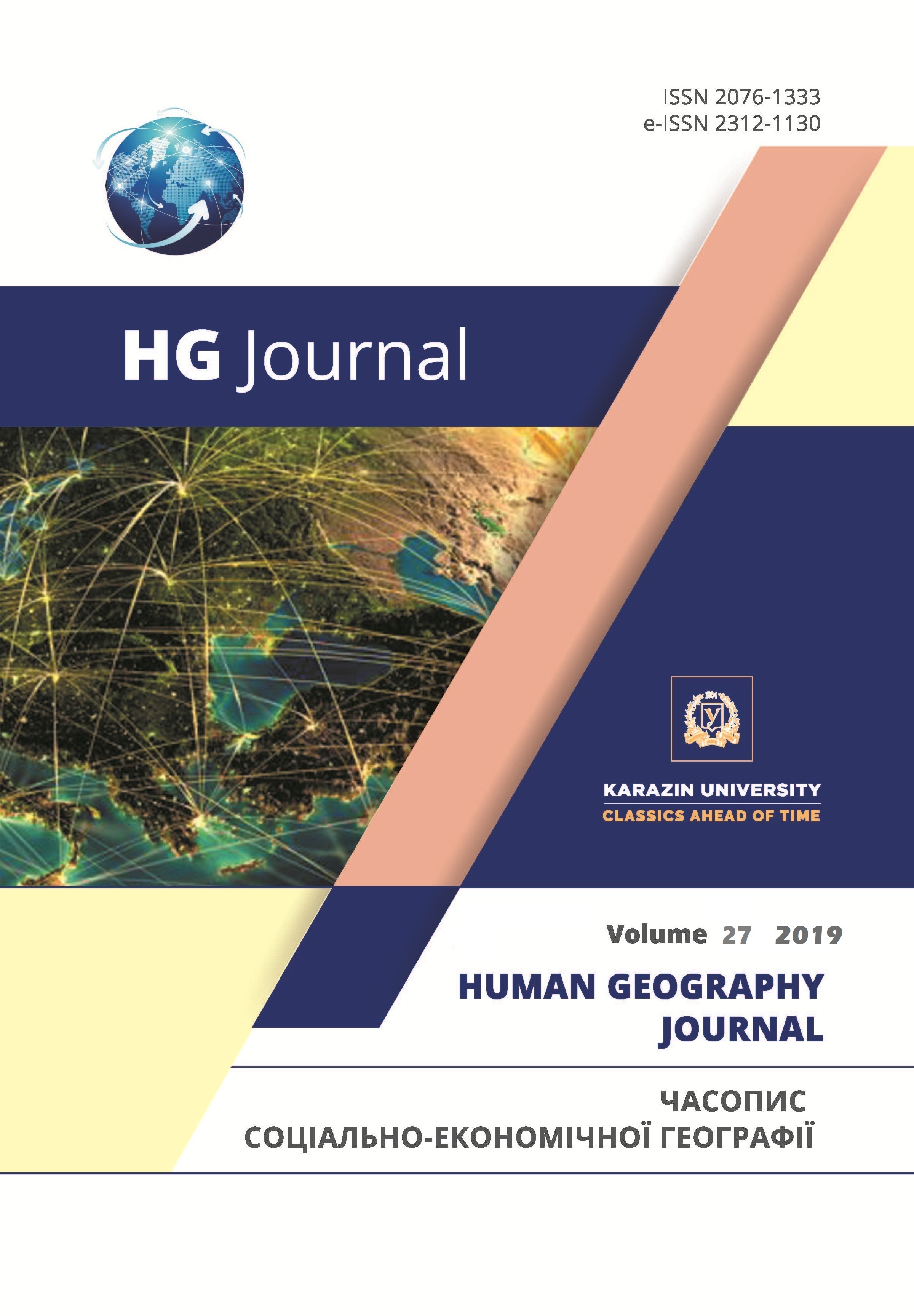The development of tourism in Great Britain: peculiarities and prospects
Abstract
This paper analyzes tourism development in Great Britain. It is noted that the competitive advantage of the country in the market of tourist services is its physical, geographical as well as economic and geographical position. The country has a strong natural, recreational, historical and cultural potential, a modern hospitality industry and a vast transport network. Cultural, business, educational, event, sport, nostalgic and rural tourism are the main types of tourism in Great Britain. A tourism brand is designed in the country. The National Visit Britain Tourism Development Agency deals with its promotion internationally.
It is estimated that according to global tourist arrivals figures Great Britain ranks 6th among the countries of the European tourist region. The dynamics of tourist arrivals to the country for the period of 2006-2018 is analyzed. It is determined that there has been a gradual increase in the quantity of foreign tourism since 2012, except for the year of 2018. In general, outbound tourism outweighs the inbound one in the country.
It is established that the main consumers of the British tourist product are tourists from the US and Western Europe. Most often the country is visited by working people aged 25-34. Weekend tours are predominant in terms of the purpose of travelling to Great Britain. London is the most popular tourist centre of the country. Half the number of tourists coming to Great Britain visits it. Lothian, Greater Manchester, West Midland and Kent are also popular tourist centres.
It is stated that new political conditions are being created in the country caused by the initiation of its withdrawal from the EU. This will bring about both new challenges and new opportunities for the tourism sphere.
A SWOT analysis of the UK tourism industry was carried out. The problems and prospects of tourism development in the territory of the country have been identified taking into account its current social and economic and geopolitical situation. The priority tasks are to promote Great Britain as a tourism destination, to increase tourism productivity and revenue, to create new jobs and to increase the income level of people employed in the tourism sector.
Downloads
References
Koksharov, I.P., Poddubnyi, S.I., & Chirochkin, A.I. (2018). Breksit i formirovanie brшtansko-evropeyskikh otnoshenyy [Brexit and the formation of British-European relations]. The problems of science. Retrieved from https://cyberleninka.ru/article/n/breksit-i-formirovanie-britansko-evropeyskih-otnosheniy [іn Russian].
Loginova, N.Yu. (2015). Turistskiy biznes Velikobritanii: istoriya i osnovnye napravleniya razvitiya otrasli [UK tourism business: history and main directions of the industry development]. Scientific journal «Servis PLUS», 9(2), 19-24 [in Russian].
Malska, M.P., Hamkalo, M.Z., & Bordun, O.Yu. (2010). Turystychne krayinoznavstvo. Evropa [Tourist country studies. Europe]. Kiev: Learning Center, Ukraine, 224 [in Ukrainian].
Mirovoy atlas dannykh. Velikobritaniya. Turizm. [World Data Atlas. Great Britain. Tourism]. Retrieved from: https://knoema.ru/atlas/%D0%92%D0%B5%D0%BB%D0%B8%D0%BA%D0%BE%D0%B1%D1%80%D0%B8%D1%82%D0%B0%D0%BD%D0%B8%D1%8F/topics/%D0%A2%D1%83%D1%80%D0%B8%D0%B7%D0%BC [in Russian].
Parfinenko, A.Yu. (ed.) (2013). Osoblyvosti formuvannya ta realizatsii turystychnoi polityky derzhavy: mizhnarodnyi, nacionalnyi, regionalnyi dosvid [Features of formation and realization of the state tourism policy: international, national, regional experience]. Kharkiv: V.N. Karazin Kharkiv National University, Ukraine, 280 [in Ukrainian].
Polishko, H.H. (2015). Svitovyi dosvid stvorennya natsionalnykh brendiv [Worldwide experience in creating national brands]. BusinessInform, 11, 80-85 [in Ukrainian]. ]
Meshko, N.P., Redko, V.Ye., & Krupskyi, O.P. (2016). Regionalnyi turyzm: strategiya, resursy, perspektyvy rozvytku [Regional tourism: strategy, resources, development prospects]. Dnipropetrovsk: Oles Honchar Dnipropetrovsk National University, Ukraine, 321 [in Ukrainian].
McKee, D., & McKee, M. (2018). What might Brexit mean for British tourists travelling to the rest of Europe. Journal of the royal college of physicians of Edinburgh, 48 (2), 134-140.
Foley, N., & Rhodes, C. (2019). Tourism: statistics and policy. London: House of Commons Library, 27.
Greenwood, J., Wililams, A., & Shaw, G. (1990). Policy implementation and tourism in the UK: Implications from recent tourism research in Cornwall. Tourism Management, 11 (1), 53-62.
Industrial Strategy Tourism Sector Deal: Building a world-class experience economy. Retrieved from: https://assets.publishing.service.gov.uk/government/uploads/system/uploads/attachment_data/file/812944/tourism-sector-deal-print.pdf.
Jansen, K. (2014). Tourism is leading UK economy growth. Caterer & Hotelkeeper, 22.
Janson, K. (2017). Four policies for post-Brexit tourism. Tourism (London), 167, 4-5.
Logan, A. (2016). The impact of heritage tourism for the UK economy, 43.
Office for National Statistics. Retrieved from: https://www.ons.gov.uk/.
Parker, A. (1999). The Future Development of the UK Hospitality Industry: The Role of the British Hospitality Association. Tourism and Hospitality Research. 1 (3), 279-282.
Sima, C. (2017). Brexit impacts on British tourism. Strategii Manageriale, 5(34), 297-303.
Visit Britain. Retrieved from: https://www.visitbritain.org.
World Tourism Organization UNWTO. Retrieved from: http://www2.unwto.org/
Citations
ОСОБЛИВОСТІ ПРОЦЕСУ СЕРТИФІКАЦІЇ ЕКСКУРСОВОДІВ У ВЕЛИКІЙ БРИТАНІЇ
Грабар М.В., Машіка Г.В. & Кашка М.Ю. (2025) Таврійський науковий вісник. Серія: Економіка
Crossref
Copyright (c) 2019 Кучерява Г., Козак Т.

This work is licensed under a Creative Commons Attribution 4.0 International License.




